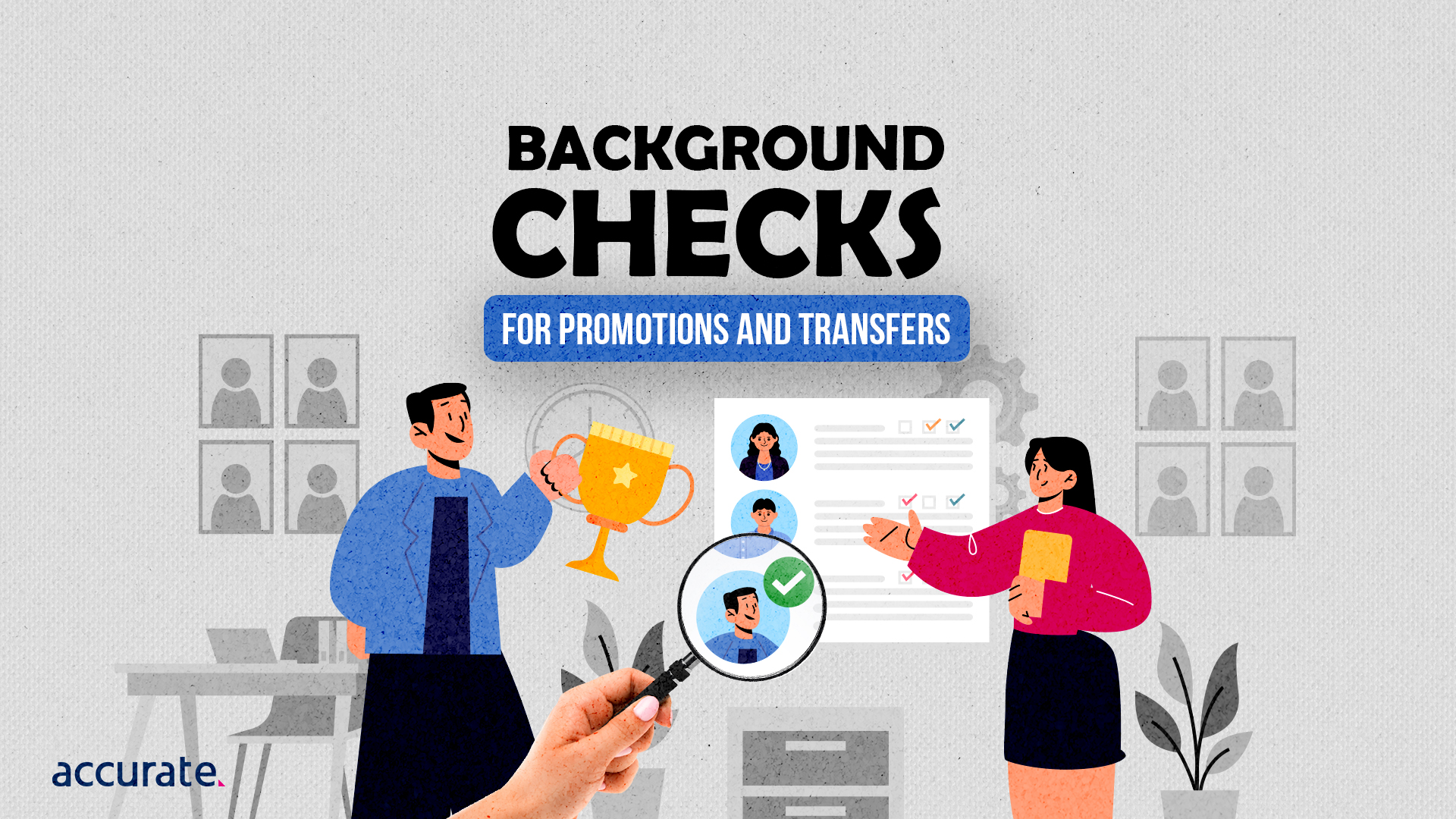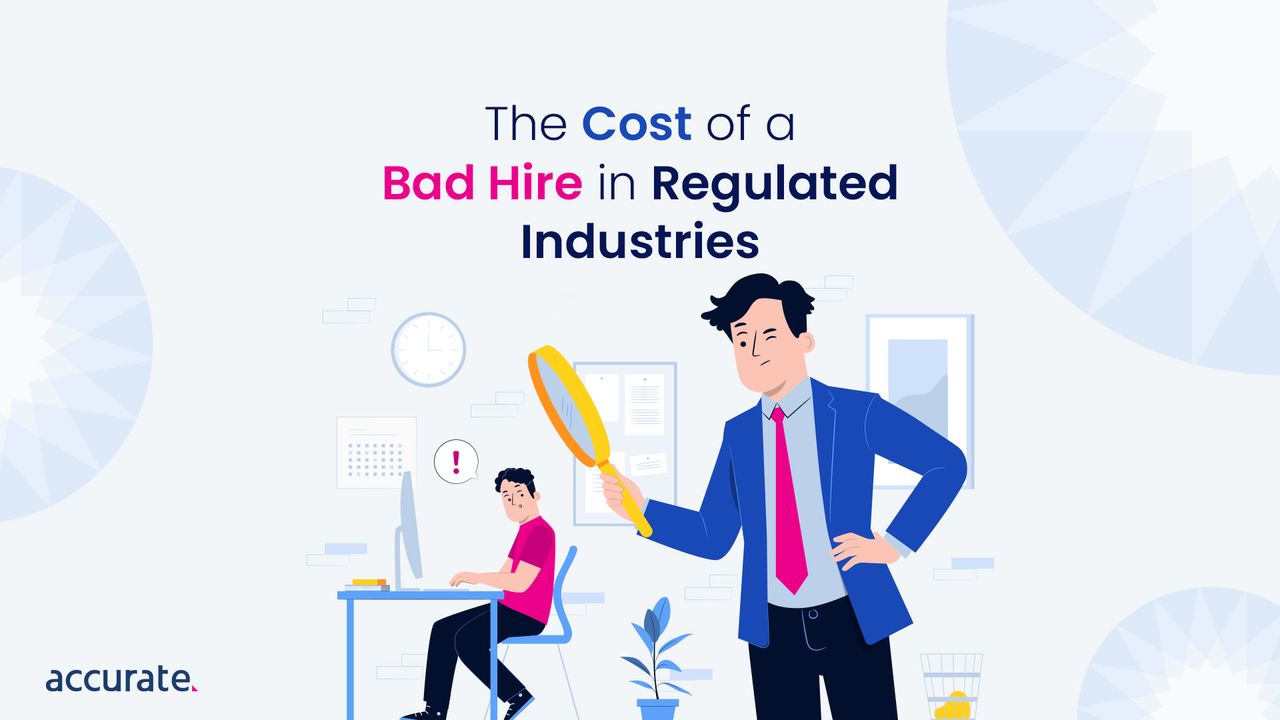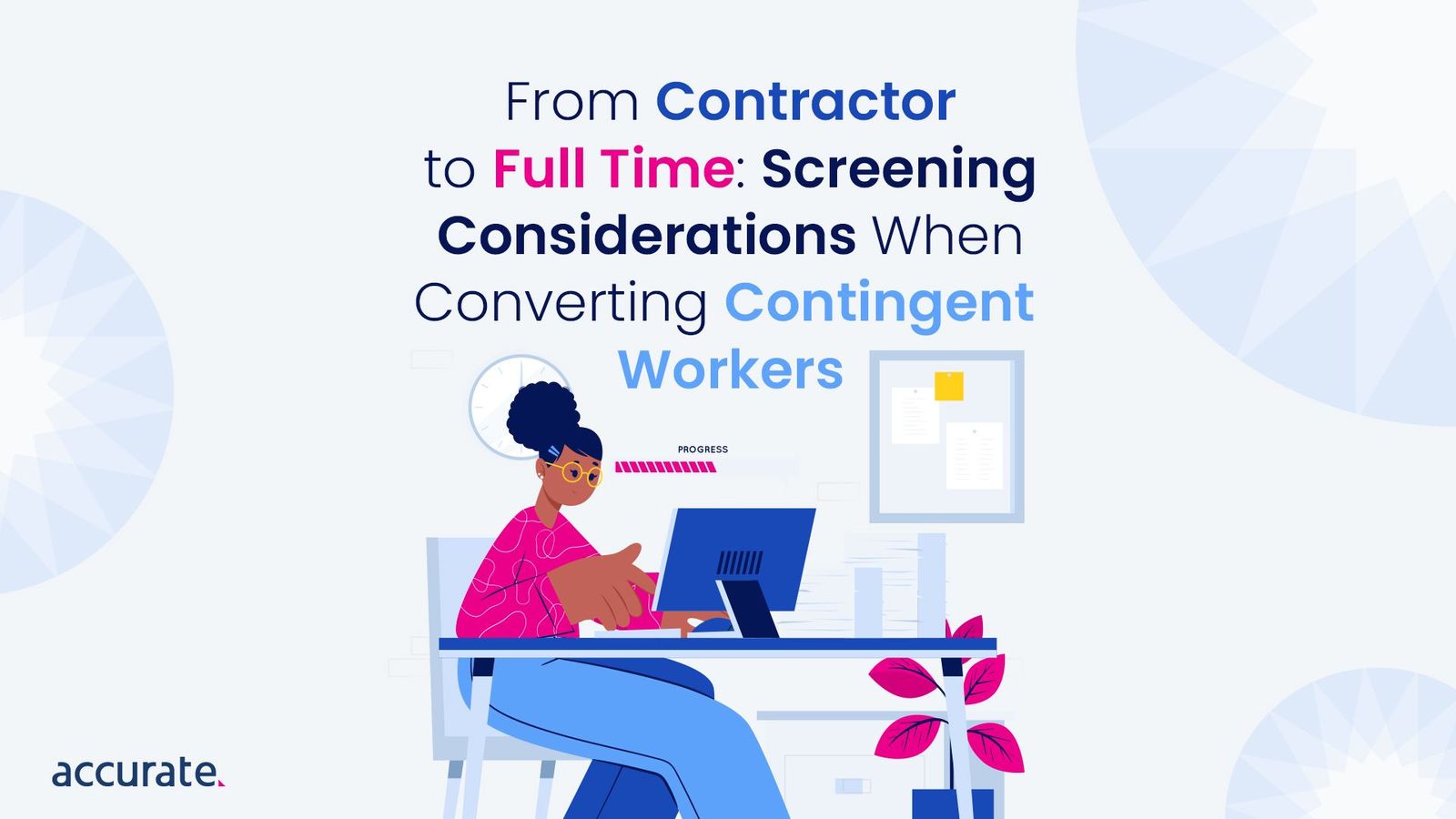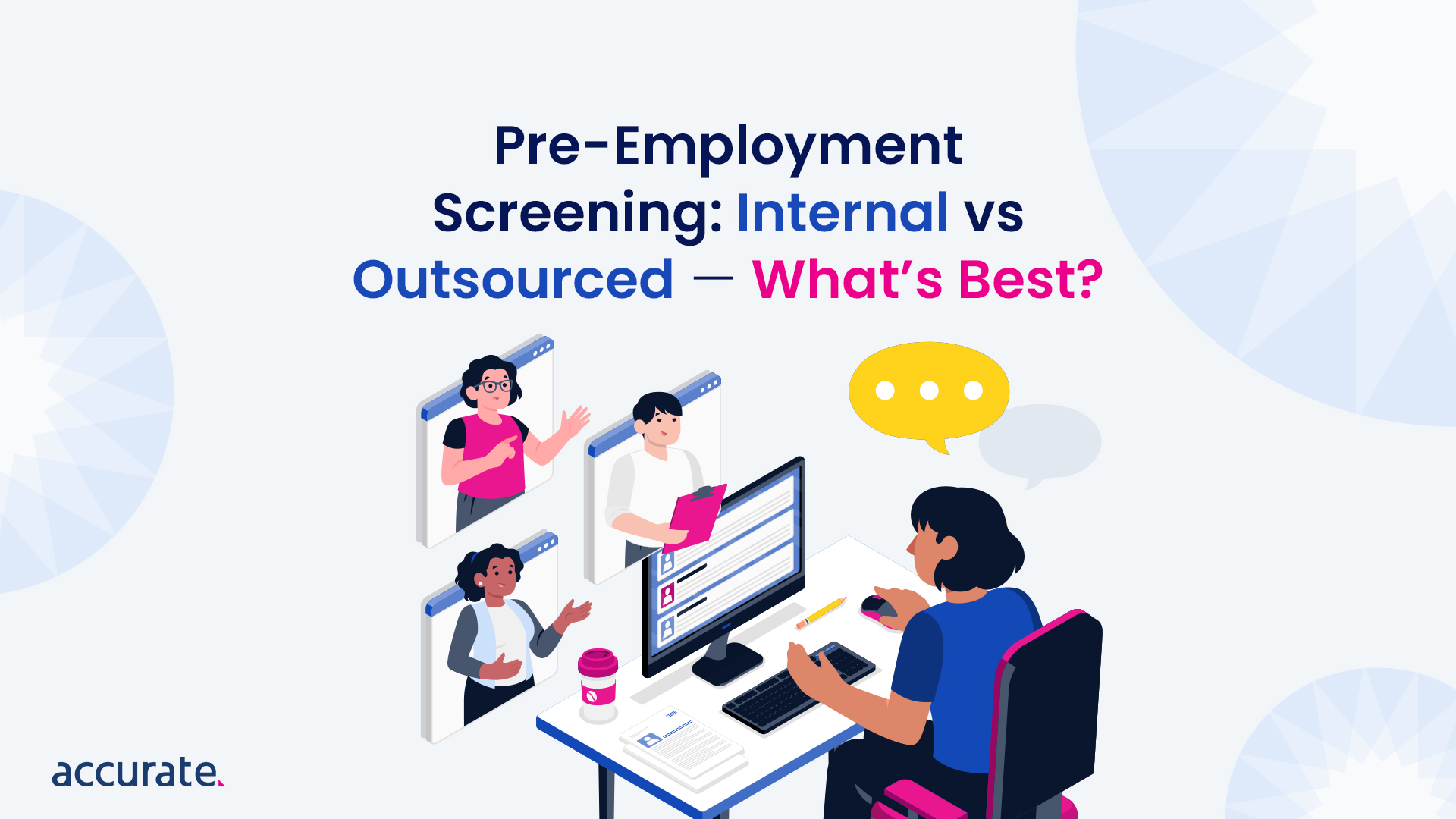DISCLAIMER: Accurate prepared these materials for informational purposes only. These materials are not intended to be comprehensive, and are not a substitute for, and should not be construed as, legal advice. Accurate does not warrant any statements in these materials. Employers should direct questions involving their organisation’s compliance with or interpretation or application of laws or regulations and any additional legal requirements that may apply, to their own legal counsel.
Conducting thorough background checks is a standard practice for most organisations when hiring new employees.
However, there’s a common misconception that once an individual has been screened and onboarded, there’s no need for further checks throughout their tenure with the company.
The truth is, an employee’s circumstances can change over time, and the responsibilities associated with their role may evolve. This is particularly true in cases of internal promotions or transfers, where individuals take on different duties and gain access to sensitive information or assets.
In this article, we explore how changing roles can introduce new risks, Australia’s legal and compliance considerations, and the benefits of implementing a continuous screening process for internal promotions and transfers.
Changing Roles, Evolving Risks
Internal promotions or transfers often come with a shift in responsibilities and an increased level of trust in the employee. During this time, they’re likely to gain access to confidential data, valuable intellectual property, or sensitive areas within the organisation’s premises.
While an individual’s background may have been thoroughly vetted during the initial hiring process, their circumstances can change over time. For example, personal or financial situations can develop, leading to potential risks not present earlier. This is why rescreening employees is necessary to avoid exposing the organisation to several types of threats.
For example, an employee promoted to a management role with access to payroll information or financial records could pose a risk if they have recently acquired significant debt or faced bankruptcy problems.
Likewise, granting an employees access to secure facilities or sensitive client data without verifying any changes in their background could compromise the organisation’s security and reputation.
If an organisation doesn’t regularly check the background of its employees, they may end up in positions of trust or security without realising it. This can be risky for the organisation’s reputation, assets, and operations.
Legal and Compliance Considerations in Australia
In Australia, some laws and regulations govern workplace security, privacy, and the handling of personal information. So, organisations are responsible for maintaining a safe and secure environment for their employees, clients, and stakeholders.
The Privacy Act 1988 outlines principles for collecting, using, and disclosing personal information, including employee data. Organisations must ensure that background checks or rescreening processes comply with these principles and respect individuals’ privacy rights.
Additionally, industry-specific regulations and standards may mandate ongoing background checks for certain roles or sectors. For example, in the financial services industry, the Australian Prudential Regulation Authority (APRA) requires regulated entities to conduct regular fit and proper assessments of their personnel, including background checks.
Failure to comply with these legal and regulatory requirements can result in significant penalties, reputational damage, and potential legal liabilities for organisations.
A robust rescreening process for internal promotions and transfers can mitigate these risks and demonstrate a company’s commitment to maintaining a compliant and secure work environment.
Continuous background checking also aligns with best practices and industry standards, such as those drafted by the Australian Human Resources Institute (AHRI) and the Australian Security Industry Association Limited (ASIAL).
These organisations recognise the importance of ongoing screening to ensure the integrity and trustworthiness of employees, particularly in positions of heightened responsibility or access.
Benefits of Continuous Employment Screening
Implementing a continuous screening process for internal promotions and transfers offers many benefits to organisations. It enhances their overall security, fosters a culture of integrity, and strengthens employee trust.
Let’s take a look at these perks in more detail:
Enhanced Security
Regularly rescreening employees ensures that those in critical positions or with access to sensitive information are thoroughly vetted. This proactive approach identifies potential risks or changes in an employee’s background that may have gone unnoticed, allowing the company to take appropriate measures to mitigate threats.
Promoting a Culture of Safety and Integrity
Regular background checks can deter misconduct or unethical behaviour. When employees understand that their backgrounds will be periodically reviewed, they are more likely to maintain high standards of conduct and accountability. This fosters a culture of safety, integrity, and professionalism.
Building Trust and Transparency
An organisation’s commitment to continuous screening can strengthen the trust and confidence of its employees, clients, and stakeholders. Employees appreciate the transparency and the organisation’s dedication to maintaining a secure and trustworthy workplace environment. This can lead to improved morale, productivity, and a stronger sense of loyalty among the workforce.
Key Takeaways
- Employee circumstances can change over time, introducing new risks as they move into roles with greater responsibilities or access to sensitive information.
- Continuous screening allows organisations to identify potential issues proactively and take appropriate measures to mitigate evolving threats.
- Australian laws and industry regulations emphasise maintaining secure, compliant practices; ongoing checks demonstrate adherence to these standards.
- Beyond compliance, regular screening promotes a culture of integrity, accountability and professionalism.
- Transparency around continuous vetting builds trust with employees, clients and stakeholders, improving workplace morale and loyalty.
- Organisations should review their current screening policies to prevent vulnerabilities from relying solely on one-time checks during hiring.
Accurate has the expertise to guide Australian companies in implementing robust, tailored re-screening strategies that meet their unique needs.
Contact us today to find out more about how we can help your organisation with rescreening, or read our in-depth employment screening guide to see how these efforts can further safeguard your business.



